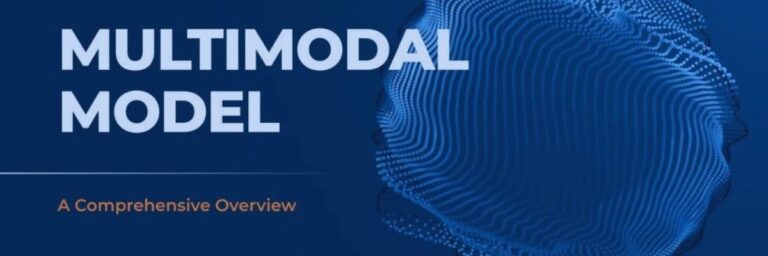Advanced AI systems are revolutionizing the way businesses operate by automating workflows, improving client interactions, and providing data-driven insights. Large Language Models (LLMs) play a significant role in this transformation by learning from vast amounts of data and utilizing computational power to streamline various processes. LLMs should go hand in hand with privacy and data protection concerns in AI systems. Since businesses are assisted with sensitive data, ensuring that it is protected by LLMs when processing it is non-negotiable when trying to avoid data theft, maintaining IP security, and following laws such as GDPR and HIPAA. To improve this aspect, private LLMs enhance the level of protection as the data is processed in-house within the organization.
The LLM market size is projected to grow from $1.59 billion in 2023 to an estimated $259.8 billion by 2030, reflecting a compound annual growth rate (CAGR) of 79.8%. This rapid expansion is driven by the increasing adoption of LLMs in automating tasks that were previously performed manually, such as customer reporting, addressing queries, and enhancing decision-making processes. By 2025, it is expected that there will be 750 million LLM applications, with a growing user base reflecting the increasing reliance on AI to optimize business operations and customer interactions. The use of LLMs is set to reshape industries, helping businesses remain competitive and responsive to evolving market needs.
What is a Private LLM?
Private LLMs, a type of large language models (LLMs), are meticulously designed and utilized within the organization’s own premises, be it on-premises or a private cloud. This ensures that all data used for training the models and inference remains within the secure confines of the internal organizational environment. No private LLM templates are processed on third-party servers, ensuring greater control and security over data handling and the management of LLM models
Why Private LLMs?
- Enhanced Data Security: Private LLMs, operated within the organization, significantly reduce the risks associated with data exchange or breaches. This is because almost all available data is kept within the organization’s infrastructure, thereby enhancing data security in the AI usage process.
- Control Over Private Data: With private LLMs, organizations can create and train models using private information that would otherwise be challenging to train without sharing private information with external parties. This control over sensitive information is a significant advantage of private LLMs.
- Protection from External Threats: By leveraging private LLMs, organizations can proactively mitigate certain risks associated with dependence or outsourcing such services to other parties. This includes risks of exposure of information, unauthorized access to data, or violation of policies such as the GDPR regulations. This proactive approach ensures the security and privacy of the organization’s data.
Supercharge Your Business with LLM Technology – Get Started Now
Partner with Kanerika for Expert LLM implementation Services
Understanding Private LLMs
A. What Makes an LLM “Private”?
A private LLM is any artificial intelligence model that only goes through training and deployment within the organization’s infrastructure. All the data policies, model configuration, and inference are localized and are not made by any third party. The most significant factor that categorizes LLMs as “private” is that all the training data and the outputs of the models are handled solely by the organization and not processed using public servers and APIs.
When the cloud service is either an on-premises LLM or a third-party virtual private cloud (VPC) LLM, all external network communication is restricted. This type of configuration is highly suitable for domains associated with confidential or controlled information, such as health care, finance, and legal services.
B. Key Features of Private LLMs
- Data Privacy: Private LLMs ensure that data stays within the organization’s boundaries, minimizing the risk of breaches or leaks. This is crucial for industries with strict data security standards.
- Customization: Enterprises’ internal use of private LLMs allows organizations to adapt these ML models using their data. Which leads to better results due to the ability to alter general models.
- Regulatory Compliance: Private LLMs allow organizations to meet various data private requirements, such as GDPR and HIPAA, since transferring information to third-party servers is unnecessary.
- Full Control: The entity in control of the model governs any behavioral changes, periodic modifications, and fine-tuning management. Thus, this helps better manage the risks posed by AI outputs and the need for 3rd party vendors.
- Security: Organizations can eliminate inherent risks as a pooled resource within a virtualized LLM by providing higher forms of data variety through locally implemented LLMs. This emphasis on security makes private LLMs a reassuring and safe choice compared to public options.
Read More – LLM Security: Ways to Protect Sensitive Data in AI-Powered Systems
C. Differences Between Private and Public LLMs
| Aspect | Private LLMs | Public LLMs |
| Data Handling | Data remains within the organization’s infrastructure, ensuring privacy. | Data is sent to third-party servers for processing, raising privacy concerns. |
| Customization | Can be fine-tuned on private data, offering tailored results. | Typically trained on general datasets, leading to less specialized outputs. |
| Compliance | Helps meet regulatory standards like GDPR by keeping data in-house. | Requires careful data handling and may struggle with compliance due to external processing. |
| Control | Full control over model updates, tuning, and data usage. | Limited control as updates and changes are managed by third-party providers. |
| Security | Provides stronger security by running locally, minimizing external risks. | Greater vulnerability as data is processed externally. |
| Cost | Higher upfront costs for setup and infrastructure, but scalable long-term. | Lower initial costs, but potentially high ongoing fees for API access. |
| Scalability | More cost-effective for large-scale operations with high data processing needs. | Suitable for smaller operations but less scalable for heavy data use. |
Generative AI Vs. LLM: Unique Features and Real-world Scenarios
Discover the key differences between Generative AI and LLMs, and learn how to leverage their unique features in real-world applications—start exploring today!
Benefits of Private LLMs
1. Enhanced Data Security and Privacy
Private domain-specific LLMs hold all models trained on data within the organization’s boundary, be it an on-premises or private cloud, which would directly tackle the issue of data leakage and data occupancy by unfriendly agencies. This feature protects them from all data breaches and unauthorized approaches, especially because there are no external servers where such data trains and APIs are utilized. Correspondingly, this level of security can be afforded by the companies in charge of data, privacy, and any other sensitive information, such as healthcare, finance, and securities.
2. Customization and Domain-Specific Training
Companies can also customize the proprietary domain-specific data of the models to make them appropriate for their operations, which in turn helps produce quality outputs from AI-driven outputs. Moreover, this approach allows businesses to develop highly specialized models that public large language models (LLMs) cannot provide.
3. Compliance with Data Regulations (e.g., GDPR, HIPAA)
To comply with the Private Vertical Market LLM, institutions must handle all work, particularly data control, to adhere to strict data protection laws like GDPR and HIPAA. That way, sensitive customer data is not left out to third parties, reducing the possibility of regulation breaches.
4. Reduced Dependency on Third-Party Providers
With private LLMs, the need for outside AI services or APIs is eliminated. By eliminating third-party dependency, costs are reduced, and risks from third-party exposure, lapses, or service policies are avoided, providing greater security for the audience.
5. Improved Control Over AI Capabilities
Organizations have full control over how their private LLMs are updated, trained, and deployed. This control over AI capabilities empowers organizations to manage their models flexibly, customizing the AI system in accordance with progressing demands without the need to work with other vendors.
Transform Your Operations: Explore LLM Solutions for Business
Partner with Kanerika for Expert LLM implementation Services
Use Cases for the Private LLMs
1. Healthcare and Patient Data Analysis
The patient’s sensitive data is processed privately within the walls of the institution, where these systems can be used for advanced medical analytics and AI diagnostics tools that comply with laws such as HIPAA. These models will help in the examination of medical histories, the creation of individual therapies, and the assistance of clinical decisions without the fear of data leakage.
2. Financial Services and Sensitive Transaction Processing
Private LLMs also allow banks to offer AI features such as fraud detection, transaction processing, and customer interaction from a secure environment. This means that affordable private LLMs are good for business since they help banks and other financial organizations meet COPPA compliance levels while keeping customers’ information private.
3. Legal and Confidential Document Handling
It has been noted that law firms or corporate counsel can also apply private LLMs in sifting through data bearing heavy amounts of classified information, complex contracts, contract formation, contract analysis, and advising clients on legal matters. This way, the privacy and confidentiality of the sensitive legal data in question are maintained, and the chances of this data being compromised during analysis are minimized with the help of AI tools.
4. Government and Classified Information Management
Private sector governments can employ private LLMs to interpret classified materials safely, for instance, in the area of national security and for policy formulation purposes. These models assist in dealing with enormous amounts of data while safeguarding confidential information within government establishments.
5. Research and Development in Competitive Industries
Private LLMs may assist industries such as pharmaceutical, technology, manufacturing, or any other competitive industry in their research and development by executing research data without exposing intellectual assets to the public. Thus, organizations can carry out creative processes without supervision as sensitive research and competitive intelligence are obstructed from unauthorized access.
Retrieval Augmented Generation: Elevating LLMs to New Heights
Discover how Retrieval Augmented Generation enhances LLMs for smarter, more accurate insights—unlock the future of AI-powered decision-making today!
Implementing Private LLMs
1. Assessing Organizational Needs and Resources
The first step in adopting a private LLM can be to determine whether your organization would need such a model. Look at aspects including the amount of data your organization handles, whether specific laws govern its storage (HIPAA, GDPR, etc.), and whether your organization has the capability and willingness to supply and protect from harm, such as LLM infrastructure. Evaluating available resources such as computational facilities, for example, servers, storage, and specialized human resource skills, is important in determining if your organization is ready to embrace private LLMs.
2. Choosing Between On-Premises and Cloud-Based Solutions
The organization must deploy the private LLM on-premises or in a dedicated hosted cloud. Solutions deployed on business infrastructure guarantee maximum security for any data; however, they come with a high initial establishment cost and continuous support. Conversely, private cloud architecture helps in scaling and lowering infrastructure costs but also ensures data privacy within the infrastructure of a virtual private cloud. The choice will depend on the organization’s security requirements and available resources.
3. Data Preparation and Model Tuning
For private LLM to be effective, it is imperative to prepare the data correctly. This includes gathering non-public information, refining it, archiving it, or preparing a database. After completing data preparation, we calibrate the model to fit the organization’s practices. In industries requiring specialized language models, domain-specific training ensures precise outputs tailored to specific needs.
4. Integration with Existing Systems
LLMs installed within an organization are compulsory to be integrated with existing systems, such as CRM, Data management systems, Security management systems, etc. This guarantees functional compatibility with other AI-based functionalities. Private LLMs may not work efficiently with the current system interfaces, so the development of API integration and middleware may be required.
5. Ongoing Maintenance and updates
Train employees in data security best practices to ensure they understand how to securely handle sensitive data and operate within the LLM framework. Provide basic AI and LLM training so employees know how to effectively interact with and use the private LLM. Also, this can improve both security and the efficiency of the LLM’s deployment.
Revolutionize Decision-Making: Adopt LLMs for Smarter Insights
Partner with Kanerika for Expert LLM implementation Services
Future Trends in Private LLMs
1. Improvements in Effectiveness and Less Need for Computational Power
As technology enthusiasts note, private LLMs will improve the computing power needed as the hardware matures. Optimizations like quantization and pruning will enable the models to operate on low-end machines while providing the same level of service. Moreover, these advancements will consequently lower the entry barriers to private LLMs and other smaller organizations that must purchase such infrastructure.
2. Enhanced Transfer Learning
Private LLMs will expand the use of transfer learning to minimize the time and amount of data necessary for domain-specific modification. Moreover, this will enable organizations to adjust the generic models to their data with fewer resources. Thus, it facilitates the shift towards using task-oriented LLMs in various market segments.
3. Applicability of Edge Computation
The private LLMs of the future will incorporate communication technologies with edge computation to process AI better and closer to the data. Additionally, this helps cut down on response time and enhance secure information handling, as no confidential information will exit the device or network. Also, edge-oriented private LLMs will be of great importance to the health industry, which requires seamless integration with a reliable payment provider to ensure instantaneous processing.
4. Enriched Multimodal Capabilities
Private LLMs will evolve to handle inputs in more than a single form, such as text with images or voice with text. This capability will mean that more complex and interactive AI systems can be developed for businesses. As they will accept multiple inputs at a time and integrate that information for better decision-making and analysis.
5. Evolving Regulatory Landscape
Given the growing concern regarding data privacy today, Private LLMs will come in handy for service blueprints that seek to abide by new regulations such as the GDPR and CCCP. Moreover, future models will likely possess embedded capabilities that will assist in data protection compliance. Such as data removal or masking and the ability to track model manipulation.
Enhancing Operational Efficiency through LLM-Driven AI Ticket Response
Boost your operational efficiency with LLM-driven AI ticket responses—streamline support and resolve issues faster today!
Challenges in Private LLM Adoption
1. High Computational Requirements
Where an organization tends to deploy its LLMs, the computation power remains high, especially for larger models. To exercise these models, there is a need for organizational high-performance servers, GPUs, and data storage. Which is a hindrance for most small businesses that lack robust IT infrastructure.
2. Expertise Needed for Deployment and Management
It isn’t only the deployment of private LLMs that is a challenge; it’s also about its management. Rescue organizations must have AI development, training, security, and optimization of models and teams. This sometimes involves hiring new talent to address the issue or investing heavily in training, both of which can lead to frustrations during the implementation process.
3. Balancing Performance with Privacy
Because of data storage within the organization’s four walls, private LLMs’ performance tends to be inferior. Also, low LLM performance in preserving data increases mistrust when introducing the model in scenarios where sensitive information might be collected. Reducing the model’s efficiency when protecting sensitive data becomes an issue. More data is kept on-site rather than processed externally as the demands increase.
4. Keeping Up with Rapid Advancements in LLM Technology
The field of LLMs is developing quickly with the continuous introduction of novel models and methods. The issue of keeping pace with these developments and ensuring that the private LLMs are upgraded and augmented. This is to cope with the latest developments in the field becoming problematic, especially for businesses without dedicated basic research units.
5. Cost Considerations
Whereas private LLMs offer greater security and control, operational and implementation costs tend to be high. The expenses on hardware, software, security, and personnel with skills make the adoption of private LLMs economically unfeasible, mostly to smaller and medium-sized companies.
Enhance Customer Experience: Leverage LLMs for Personalized Service
Partner with Kanerika for Expert LLM implementation Services
Techniques to Enhance Privacy in LLMs
1. Federated Learning
It is a technique for learning patterns while preserving user privacy. Individual models are trained on each device instead of sending all data to one server. Additionally, this approach keeps all raw information securely on the user’s system, sending only model updates to the cloud.
2. Homomorphic Encryption
This modern type of encryption permits the operation of encrypted data without the need for decryption first. As such, even when the model engages with the data, it is secured, eliminating the other risk of exposing data by virtue of using it.
3. On-Device Processing
Implementing LLMs on devices such as smartphones or any other edge device ensures that confidential data does not leave the local device. Companies such as Apple have adopted this approach, which takes care of privacy and latency.
4. Differential Privacy
In this approach, random noise is added to the training dataset because of the existence of specific data to prevent the entry from being retraced by the artificial intelligence model. This is especially true when dealing with huge amounts of data that might require aggregation. However, individual privacy is preserved.
5. Secure Multi-Party Computation (SMPC)
SMPC enables multiple participants to perform functions that use all inputs while keeping each participant’s input confidential. In the case of LLMs, SMPC guarantees that a model can be trained with multiple entities’ data without any one entity seeing the other entities’ data.
Transforming Vendor Agreement Processing with LLMs
Streamline your vendor agreement process with LLMs for faster, more efficient, and accurate contract management—transform your workflow today!
Ethical Considerations in Private LLMs
1. Bias Mitigation in Private Models
It is important to design and train Private LLMs to reduce biases in their decision-making processes.
2. Transparency and Explainability
Private LLMs must enable privacy while justifying their decision-making process, especially in sectors where actions demand clear accountability. Tools dedicated to improving model interpretability and transparency ensure that end users understand the reasoning behind AI decisions. This fosters acceptance and trust in AI systems.
3. Balancing Innovation with Responsible AI Use
Organizations must strike a balance between fast-paced enhancement in AI technology and prudent application of such technology. It seeks to ensure that the deployment of AI is commensurate with the principles of equality and privacy. Also, these are often applied in Normal circumstances while advancing the capabilities of AI. Such coordination is critical in enhancing trust and limiting the abuse of Private LLMs.
4. Data Ownership and Consent
When deploying private LLMs, it is important to emphasize the issue of data ownership and seek users’ consent before using their data for model training or analysis. Organizations are bound to standards regarding data use in these trends to avoid a breach of privacy.
5. Environmental Impact of Model Training
Large LLMs require a lot of computing resources to create, which means high carbon emissions. Organizations should realize that the deployment of such large models is related to environmental sustainability. Thus, they should seek to optimize the AI infrastructure in terms of energy consumption so that accuracy can still be obtained.
Streamline Processes: Discover How LLMs Can Optimize Your Business
Partner with Kanerika for Expert LLM implementation Services
Case Studies: How Kanerika Leverages AI to Drive Business Transformation
1. Transforming Vendor Agreement Processing with LLMs
Kanerika deployed Large Language Models (LLMs) to streamline the complex process of vendor agreement management. Traditional vendor agreements involved manual document processing, resulting in long delays and inefficiencies. Kanerika utilized LLMs to automate the extraction of key information from contracts, significantly reducing the time spent reviewing agreements.
By leveraging LLMs, Kanerika enabled businesses to manage their vendor relationships more efficiently, ultimately helping them stay competitive in fast-evolving markets.
2. Enhancing Operational Efficiency through LLM-Driven AI Ticket Response
Kanerika implemented an AI-driven solution using LLMs to improve ticket resolution in a client’s support operations. Handling customer support tickets manually led to delays and inconsistencies in responses. We designed the AI solution to interpret customer issues and generate accurate, timely responses.
Through the deployment of LLMs, Kanerika enabled businesses to manage customer service efficiently. This leads to increased operational productivity and significant cost reductions.
LLM Agents: Innovating AI for Driving Business Growth
Unlock the power of LLM agents to drive innovation and accelerate business growth—start transforming your operations today!
Unlock the Full Potential of LLMs with Kanerika
In today’s fiercely competitive and rapidly changing business world, harnessing the power of AI and LLMs is a strategic imperative. Kanerika, a leading technology consulting partner, offers advanced AI and LLM-based solutions. That significantly enhance business operations and address key organizational challenges. By combining LLM with a team of AI and LLM specialists, we create customized solutions that deliver tangible benefits to our clients.
From robotics process automation to LLMs-powered predictive analytics, Kanerika is at the forefront of creating solutions that drive efficient business operations. Moreover, we assist businesses in adopting cutting-edge technologies, enabling them to thrive in the ever-evolving digital landscape. Our cross-sector partnerships further bolster their competitive edge in this digital era.
Put Kanerika in charge of helping you navigate the changing environment of AI and LLMs and what they mean for your business. With a long-standing record of successful deployments of AI in business processes within organizations, we add value to business infrastructures in AI implementation.
Innovate Faster: Embrace LLM Technology for Rapid Growth
Partner with Kanerika for Expert LLM implementation Services
FAQs
Is there a private LLM?
No single definition of “private” exists for LLMs. It depends on your needs: complete data seclusion requires self-hosting and meticulous security, whereas “private” might simply mean your data isn’t mingled with others’ in a shared model. Ultimately, “private LLM” is about control and data ownership, not a binary yes/no answer.
What is the difference between a public LLM and a private LLM?
Public LLMs are like open-source libraries – anyone can access and use them, often for free, but with limitations on customization and data privacy. Private LLMs are proprietary, offering more control and tailored functionality, but usually come with costs and restrictions on access. The key difference lies in accessibility and control over the model and its data. Essentially, it’s the difference between a shared resource and a personalized tool.
Are there free LLMs?
Yes, several open-source Large Language Models (LLMs) are available for free use. However, “free” often means you’ll need to handle the computational cost of running them yourself. These models might also have limitations compared to commercial offerings in terms of performance and access to updates. Essentially, you get what you pay for, but with open-source, you get transparency and customization options.
What is the difference between LLM Farm and private LLM?
LLM Farms are shared, multi-tenant systems offering access to various LLMs, like a cloud service for AI models. Private LLMs, conversely, are dedicated instances exclusively for a single organization, offering enhanced security and control over data and model customization. The key difference boils down to shared resources versus dedicated ownership and the level of control involved. Think of it like shared office space versus owning your own building.
Is local LLM private?
No, a local Large Language Model (LLM) isn’t inherently private. While it resides on your device, data *you* input remains vulnerable if your system is compromised. Security practices like strong passwords and up-to-date software are crucial. True privacy requires additional measures beyond just local deployment.
What is LLM privacy?
LLM privacy concerns how your data is used when interacting with large language models. It’s about protecting your sensitive information—like personal details or confidential documents—from being unintentionally stored, processed, or revealed by the AI system itself or through its training data. Essentially, it’s ensuring your privacy isn’t compromised when using these powerful, data-hungry technologies. Think of it as data security specifically tailored to the unique ways LLMs operate.
What is the difference between a public and private LLM?
Public LLMs are like open libraries – anyone can access and use them, often for free, but with potential limitations on customization and data privacy. Private LLMs are more like personal research libraries – they’re tailored for specific needs, offer greater control over data, and usually come with costs and restricted access. The key difference boils down to accessibility, customization, and associated costs. Think open source vs. proprietary software, but for language models.









